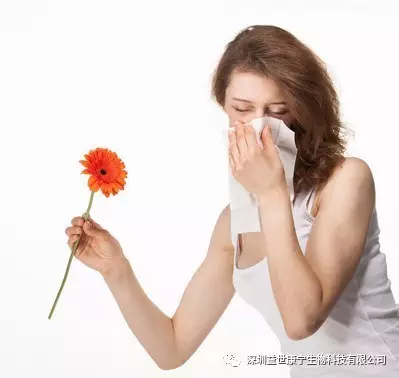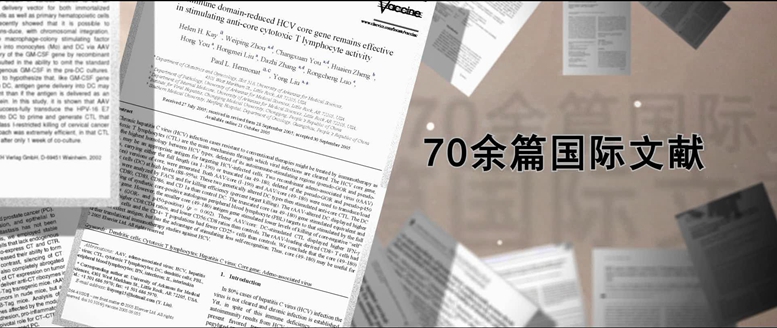Regarding cancer, our body has a defense mechanism. From "sneezing" to "cancer", there will be 9 stages during this period-the body gives you 9 opportunities to prevent cancer, listen to the voice of the body, the body will know Fix it yourself. Get to know it quickly!
No one likes to be sick, because sickness not only brings pain to the body, but also affects work and life. Some people are afraid of getting sick and take medicine as soon as they appear. In fact, more and more studies have confirmed that illness is not all bad. In fact, our body has its own defense mechanism. Some diseases are the result of the body's automatic reaction to resist the virus because the defense mechanism is triggered.
When you catch a cold, the human body uses nasal congestion, runny nose, sneezing, coughing and even fever to achieve self-defense. Taking medicine will only cover up the symptoms, and will also reduce the body's ability to resist the virus. Not only can it not "cure" the disease, it will "control the disease."
The human immune system is very powerful, and it is in a state of defense anytime and anywhere. When a disease invades, it can clearly know when, where, and how to take appropriate actions to destroy the invading substances without harming other cells in the body. Here is a brief introduction to the 9 stages of the body's own defense system "disease resistance".
1. Sneezing
The nose is the body's first checkpoint. When pathogens, toxins, pollen, etc. enter the nasal cavity, the body's self-defense system will be activated, and the body will automatically expel a large number of bacteria and foreign bodies through sneezing. If you hold back the sneeze, the pressure in the pharynx will increase, causing nose bleeding and nasal bone damage. Bacteria may also enter the middle ear tympanum through the Eustachian tube, causing purulent otitis media, sinusitis and other diseases.
2. Cough

If the pathogenic bacteria are not beaten out, they will enter the upper respiratory tract and bronchus, and the body will activate the second line of defense-cough, to cough up the pathogenic bacteria. Coughing is a natural reflex action of the body's defense system, and it is also a quick "anti-inflammatory" method. When the mucous membrane of the respiratory tract is stimulated by foreign bodies, inflammation, secretions or allergic factors, it will reflexively cause coughing, and expel these invading foreign bodies (including allergens) and excessive secretions. If you use cough suppressants or even a lot of antibiotics (anti-inflammatory drugs) as soon as you cough, the pathogenic bacteria that would have been excreted are pushed back into the body, which is not conducive to the elimination of inflammation, so the body's defense system will enter the third stage.
3. Fatigue and no appetite
At this time, the body will experience fatigue and no appetite, which is telling us to eat, drink, and rest well, so that we can concentrate our energy to fight the pathogenic bacteria and other toxins entering the body. Don’t force yourself to eat if you don’t want to eat. Drink plenty of water, rice soup or fruit juice to maintain your body’s water and nutrients. If this step is not done, the body will enter the fourth stage.
4. Fever

Fever, pathogenic bacteria enter the blood, and the body activates the immune system's resistance measures. Medical research has confirmed that the combat capability of immune cells will increase with the increase of body temperature. High body temperature reduces the concentration of iron ions in the blood, resulting in insufficient nutrients for pathogens, which in turn inhibits pathogen development. Fever is actually the body's fight against disease. About 90% of the diseases can be cured without the intervention of external means. A body temperature above 37°C is considered a fever. When the temperature rises to 38.5°C, immunity doubles. Physician Huang Jiancheng from the Dacun Township Office of Changhua County, Taiwan said: "Fever is not a disease. It is a natural and healthy physiological phenomenon when you are sick. The persistent high fever is because the pathogen has not been completely eliminated. When the pathogen is eliminated, the fever will naturally disappear. At this time, just drink enough water to keep the body hydrated. If this level is not passed, the body will enter the fifth stage.
5. Allergies

Skin allergy is a phenomenon in which the defense system removes toxins in the blood from the body. If anti-allergic drugs or ointments are used at this time, improper use will press into the body the toxins that were originally excreted through the skin. There is no way for the body to enter the sixth stage.
6, inflammation
Inflammation is the body in order to preserve the overall situation, the virus and bacteria in the blood are concentrated in one place, so that they can be eliminated uniformly, so there will be local redness, heat and pain. In fact, all inflammation is an external reflection of internal problems in the body, too much antibiotics may destroy the body's own defense system. So the body had to enter the seventh stage.
7, ulcers
The human body is a very intelligent life body, even if the inflamed place rots, it will not let the pathogenic bacteria run around. A lot of clinical practice has proved that the best way to deal with inflammation is not to use anti-inflammatory drugs and various antibiotics, but natural healing methods. Inappropriate drugs may make the ulcer fibrosis, and the body will enter the eighth stage.
8. Fibrosis, hardening, scarring
In order to protect itself, the body wraps up the ulcer to prevent it from spreading. After the scar has hardened, pathogenic bacteria can no longer move. 50% of deaths are related to various types of hardening. People's use of drugs or other medical measures may disrupt the body's hardening efforts and release the encapsulated toxins. The body had to enter the 9th stage.
9. Carcinogenesis, tumorization
In order to adapt to the new environment, cells only have mutations. Cancer cells are formed under severe water, oxygen, and nutrient deficiency. The incubation period of cancer is at least 10-15 years. It takes about 10-15 years for a cancer cell to grow to the size of a mung bean, and it only takes a year to grow to the size of an egg.
Normal cells become cancer cells because too much acid poison is accumulated in the body, and the body cannot excrete acid poison from the body. Tumor growth is the last measure the body takes to wrap the cancerous cells and prevent them from spreading.





